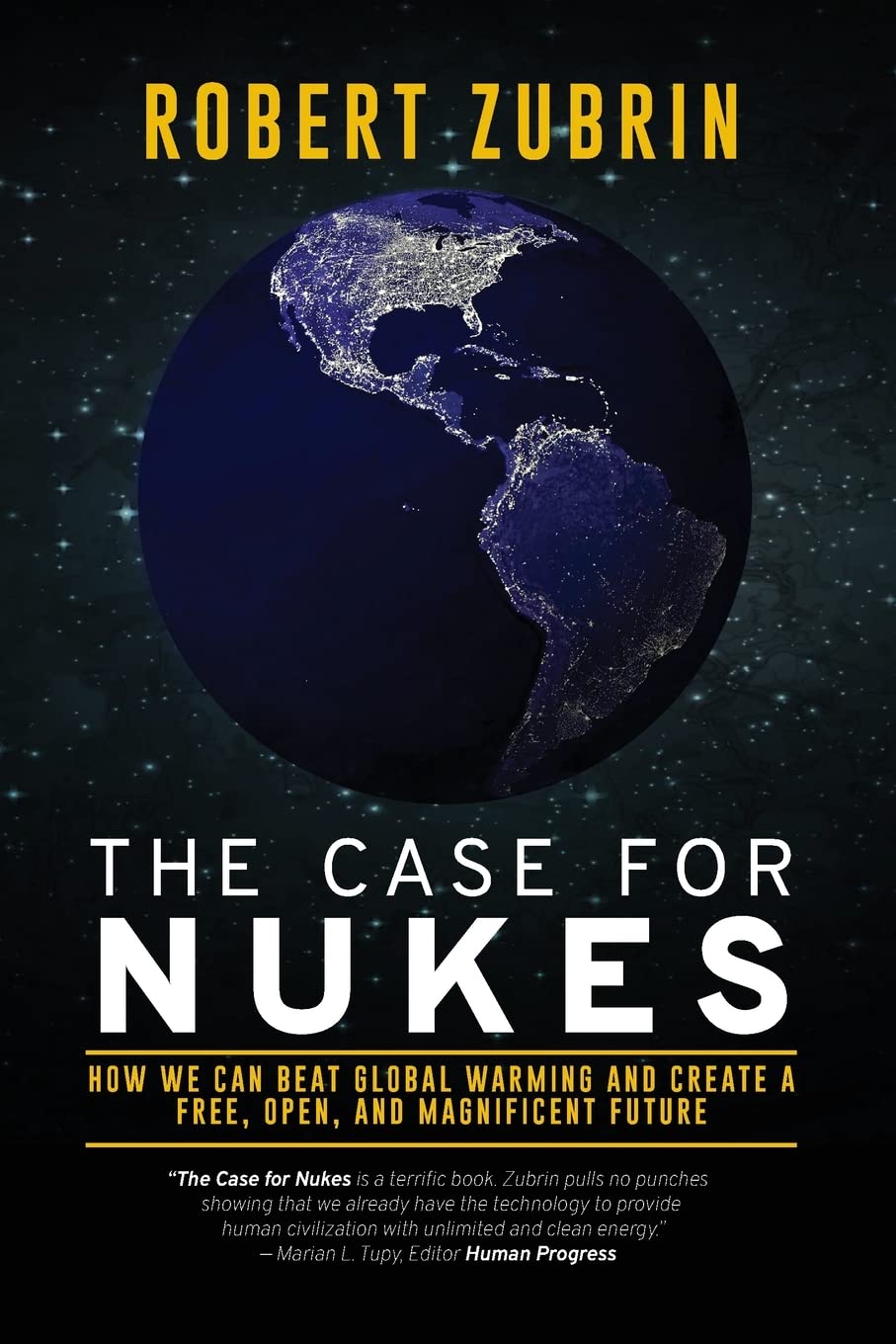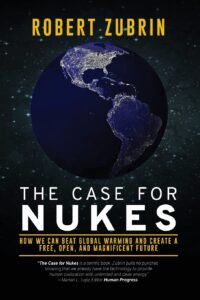Physical Address
304 North Cardinal St.
Dorchester Center, MA 02124
Physical Address
304 North Cardinal St.
Dorchester Center, MA 02124

The Best and Latest in Conservative Thought

Dr. Robert Zubrin is the acclaimed author of The Case for Nukes: How to Beat Global Warming and Create a Free, Open, and Magnificent Future and The Case for Mars: The Plan to Settle the Red Planet and Why We Must. As an internationally renowned nuclear and aerospace engineer with four decades of experience, Dr. Zubrin has significantly contributed to his field. Formerly a Senior Engineer at Lockheed Martin, he has served as President of Pioneer Astronautics since 1996, leading over 70 successful technology development projects for NASA, the US military, the Department of Energy, and private clients.
Dr. Zubrin holds Master of Science degrees in Nuclear Engineering and Aeronautics and Astronautics, and a doctorate in Nuclear Engineering from the University of Washington. He has authored 14 books and over 200 technical and non-technical papers related to aerospace and energy engineering, and holds more than 20 US patents, with several more pending.
In 1998, he founded the non-profit Mars Society and personally led the establishment of a simulated human Mars exploration station in the Canadian Arctic. He continues to serve as the society’s president. Before his aerospace career, Dr. Zubrin worked in radiation protection, nuclear power plant safety, thermonuclear fusion research, and as a secondary school science and math teacher.
The Case for Nukes

The Case for Nukes is an insightful and compelling book by Dr. Robert Zubrin, a world-renowned nuclear and aerospace engineer. In this groundbreaking work, Dr. Zubrin demystifies nuclear power, showcasing its immense potential and countering the widespread misinformation spread by various factions—ranging from the uninformed and fearful to politically motivated opponents backed by competing interests.
Dr. Zubrin delves into the latest advancements in nuclear technology, highlighting new reactor designs that can be mass-produced affordably and are inherently safe from meltdowns. He discusses innovative fuel sources like thorium, which is more abundant than uranium, and explores cutting-edge thermonuclear fusion systems capable of generating vast amounts of energy from minimal resources. Dr. Zubrin also introduces the visionary entrepreneurs driving this technological revolution, contrasting them with the bureaucrats responsible for earlier reactor models.
Beyond the technical aspects, Dr. Zubrin addresses the philosophical and ethical dimensions of the nuclear debate. He distinguishes between practical environmentalism, which aims to enhance the environment for humanity’s benefit, and ideological environmentalism, which often uses environmental issues to curtail human freedom. He argues that the latter is not only detrimental to humanity but also to nature itself. Dr. Zubrin exposes the mercenary environmentalists who, motivated by financial incentives, campaign against industries to stifle competition.
Dr. Zubrin emphasizes that freedom is the key to environmental progress, not the obstacle. He situates the nuclear power revolution within the broader historical context of civilization’s development, illustrating how technological advancements create new resources and knowledge, which in turn fuel further innovation.
Finally, Dr. Zubrin addresses the greatest threat to humanity: the belief in finite resources leading to conflict. He asserts that only in a world of unlimited resources can true global harmony be achieved, and only through freedom can these unlimited resources be realized. In The Case for Nukes, Dr. Zubrin presents a visionary roadmap for harnessing nuclear power to create a prosperous and free future for all.
Merchants of Despair: Radical Environmentalists, Criminal Pseudo-Scientists, and the Fatal Cult of Antihumanism

Merchants of Despair examines a time when humanity viewed itself as precious, worthy of protection, and liberation. Today, however, we are inundated with propaganda that paints a starkly different picture—one where human beings are seen as a cancer upon the Earth, their desires and needs posing a threat to the natural world. This ideology, known as antihumanism, has far-reaching and devastating consequences.
In this compelling book, the origins and deadly impact of antihumanism are traced in vivid detail. The narrative identifies key figures who have championed this viewpoint over the past two centuries, from Thomas Malthus to Paul Ehrlich and Al Gore. It uncovers the horrific outcomes of the antihumanist agenda, such as eugenics programs in the United States and genocidal anti-development and population control measures worldwide.
Merchants of Despair blends gripping historical accounts with robust policy analysis, offering scientific counterarguments to antihumanism’s false claims. It addresses contemporary issues such as nuclear power, pesticides, population growth, biotech foods, resource depletion, industrial development, and the fear-inducing rhetoric surrounding global warming. This book not only reveals the dangers of the antihumanist movement but also makes a compelling scientific and moral case against it.